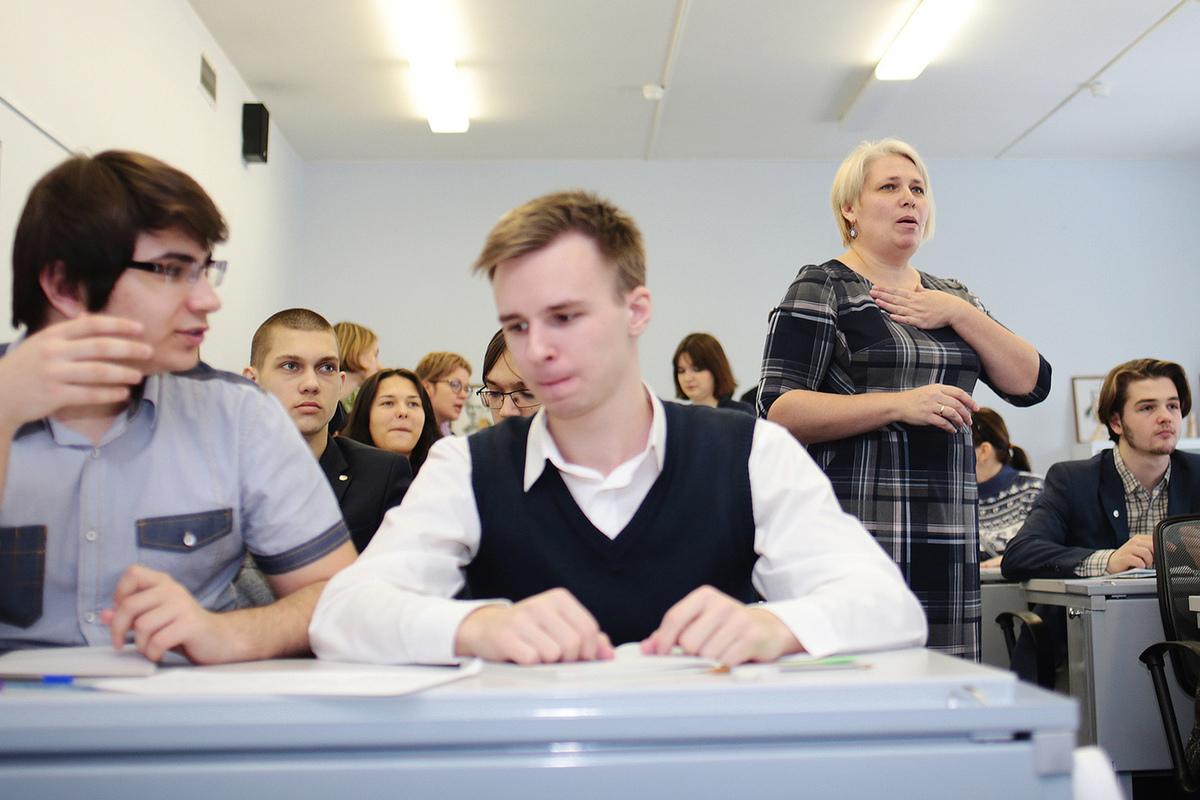Compulsory vocational guidance will be introduced in Russian schools from September
[ad_1]

Another weekly class hour will be added to the schedule
The early career guidance program in all Russian schools will begin to be implemented from September. As it became known to MK, in all regions, including the Moscow region, a project is being launched to introduce a new standard for introducing children to their future profession in grades 6-11 – only Moscow remains uncovered so far.
Such early career guidance will work on the basis of a federal project on choosing a profession. Another class hour will appear in the curriculum (most likely on Thursdays). That is, the format is extracurricular, but mandatory for visiting, like the notorious “Conversations about the Important”.
In schools, the innovation became known back in June, when the recommendations of the Ministry of Education were sent out. The department’s letter states that “in order to solve the problems of developing the economy and strengthening the technological sovereignty of the country, early career guidance for children is being introduced in schools.” Like, already at school, a certain professional minimum is needed in the future profession – three types: basic, basic and advanced. And this is only at the pilot stage.
In two years, many schools have joined the federal project, which was developed by the Humanitarian Projects Fund and the Institute for Development Strategy of the Russian Academy of Education. Now the rest of you have to catch up. And register on the portal at least 60% of students from each class in middle and high school. Responsible for conducting vocational guidance and class hours, as well as for “Conversations about the important” (ROV), will be class teachers. In the recommendation, their new function is called “teacher-navigator”.
Career guidance classes will be held in a lesson form and in a practical one. At the lessons (classroom hours), students will be given an introductory course. Extracurricular activities include excursions, exhibitions, lectures and, in fact, training in the profession. “This is a set of measures of six forms,” write the specialists of the ministry.
And to the logical question of where the production or just the practical part of the classes will take place, they give the following explanation: for schools, it is supposed to conclude a partnership agreement with professional educational organizations (for example, in the format of an educational and production complex), higher education organizations, employer companies ). They should be chosen with the expectation that engineering, medical, space, information technology (IT), pedagogical, entrepreneurial and other classes are in priority.
By the way, professional and pre-professional classes already exist in Moscow, where they were introduced even ahead of schedule. The division into areas of study has been going on since the 5th grade.
Some light on the future trade minimum is shed by the portal of the federal project itself. There are sections for teachers, and for schoolchildren, and for parents, and for school partners. There are planners for choosing personal priorities, testing, recommendations for choosing a profession. It seems that everything is on point – for parents, for example, a questionnaire was compiled: “SPO or university?” or “What are your child’s strengths?”
And yet, judging by the “talks in the teachers’ room”, most of the class teachers are confused. Another mandatory hour a week, involving some more practice and extra-curricular activities, is a new load. “Ranging out a program sent from above,” as some hope, is unlikely to succeed. Regional teachers have an unoriginal question: will they pay for it?
To pay for “Conversations about the main thing” to some teachers, the directorate did not fork out or lists a minuscule amount. But there are also those who did not think about becoming a “teacher-navigator”. “I’m just a tutor for children with disabilities, what is my professional minimum?” – asks, for example, a teacher from Ryazan.
“All this appeared in our school last year,” says Vita, a Muscovite, mother of 13-year-old Arseniy. – Since we do not yet know which area he should go to, we decided to enroll. And a few other kids from the class. I don’t know how it will be further when everyone is obliged to participate, but so far it’s even entertaining. A motivational survey and testing showed that creative professions are more suitable for children: a photographer (there were the most of them, 4 people in the class), a confectioner and a designer. Here they are all together with the class teacher and first went to the studio, where the designers told them about their work. And everyone tried themselves as photographers, filming each other. Then we went to a cooking class. It was great, everyone loved it. But in general, our teacher is easy-going – often either an excursion or going to the theater.
As for career guidance itself in this form, it is much more interesting than we had 30 years ago. We were just taken to shoe and paper factories …
[ad_2]
Source link








